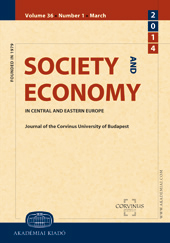Buddhist economics: An overview
Buddhist economics: An overview
Author(s): Clair Brown, László ZsolnaiSubject(s): Economy
Published by: Akadémiai Kiadó
Keywords: Buddhist economics; Buddhist enterprises; corporate mindfulness; Buddhist economy
Summary/Abstract: Over the centuries, Buddhist monks applied economic models in the operations of their monasteries to make them sustainable while also observing Buddhist principles. The large variety of economic practices observed demonstrate the creativity of monastics in acquiring the resources to support their large monasteries in a way that was viewed as compatible with Buddhist ethics embodied in the Noble Eightfold Path. Researchers have analyzed the integration of faith-based and financially related monastic needs for different countries in different eras. The Buddhist economics approach as it has been developed in the last 40-50 years aims to create an alternative worldview that challenges the main underlying assumptions of Western economics. The mainstream Western economics model is originally based on the following assumptions: rational, selfish behavior; profit-maximization; competitive markets; and instrumental use of the environment. Buddhist economics is based on a different set of assumptions: dependent origination (“pratityasamutpada”), where people are interdependent with each other and with Earth; people are aware of enlightened self-interest based on interdependence and thus are altruistic; firms care about the well-being of workers, customers, shareholders, and community; and all activities include caring for the environment. With these assumptions, the Buddhist economic model has shared prosperity in a sustainable world with minimal suffering as its goal.
Journal: Society and Economy. In Central and Eastern Europe ǀ Journal of the Corvinus University of Budapest
- Issue Year: 40/2018
- Issue No: 4
- Page Range: 497-513
- Page Count: 170
- Language: English

